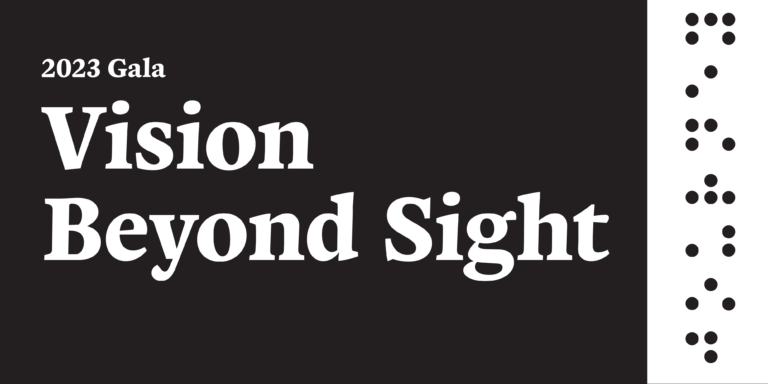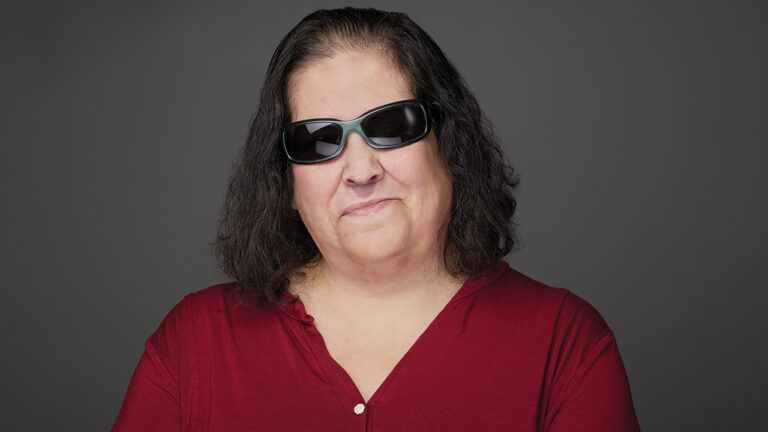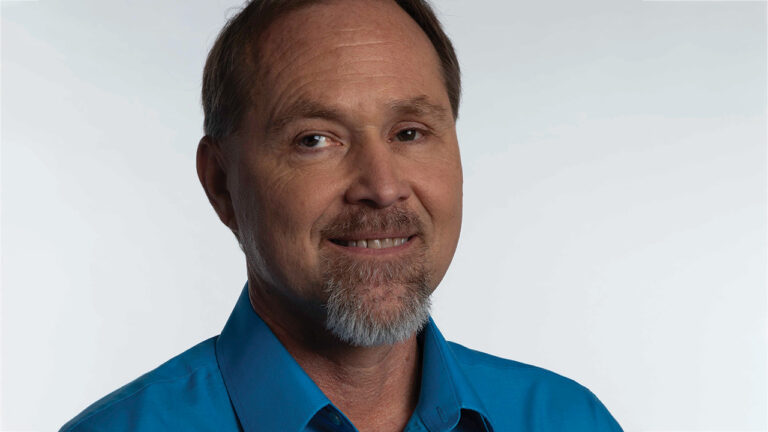In this blog, Bridgit addresses conversations that happen between blind and sighted people. We want to be sensitive and cognizant of the words we use, but, usually, trying to avoid common words like “look” and “see” makes both parties feel awkward. If a blind or a person with a vision impairment prefers a different word, that person will let you know.
My iPhone rested in my lap as I sat on the train. Like passengers surrounding me, I used my smart device to entertain myself. With an earbud positioned in my ear, I kept one ear available to track my children while the other read a book on Kindle. I enjoy reading audio books on Audible or BARD–an NLS site for the print disabled that allows us to access digital books for free. But I also enjoy reading books on the Kindle app.
A persistent poke from my seatmate caused me to stop my book and turn towards them.
“Sorry, excuse me, but what are you listening too?” A male voice asked.
“I’m reading a book.”
“You mean listening to a book.”
I raised my eyebrows. “No, I’m reading a book.”
“But you can’t read. So, you’re listening to a book.”
Sighing deeply, I gripped my armrest. “Actually, yes, I can read. And I am in fact reading a book.”
“But you can’t see, right?”
“Yep.”
“Then, how can you read?
Rolling my eyes, “Reading is a relative term, sir. My phone uses a voiceover function so the print is read that way instead of with my eyes.”
“Right, so you’re listening, not reading.”
“Sure.”
It’s prevalent in the society that we think we need to alter the language we use with disabled people. We focus so much on what we perceive as a potential slight, but more often than not, we end up insulting people by not treating them the way we do anyone else.
Most blind or people with vision impairment are used to encountering others who feel the need to modify language when speaking to blind people. The notion derives from the idea that it’s offensive and rude to use certain terms. I assure you, when I hear terms like “see” or “watching,” I’m not struck down into the depths of despair. In fact, I use the very same language.
One of my favorite pastimes is binging shows on Netflix or Prime Video. I watch shows and movies; I do not listen to them.
When I use Braille to consume information, I’m reading it with my fingers.
When my kids point and tell me to, “Look over here,” I will need some description to understand what they are pointing at, but I’m not offended that they told me to “look.”
When we insist on altering language for specific people because of a disability, we perpetuate misinformed ideas that disabled people are different. We often require accommodations in order to have equal access. This is not special treatment, but merely providing equal access to information and environments. We still live lives like our able-bodied counterparts. Changing the language we use when speaking to blind people just wedges a gap further. Despite the fact that we use the same terms and phrases, we often find sighted people insisting on modifying how they speak to us.
Yawning, I stretched in my chair. As the instructor called our attention, my fingers poised over the keyboard in front of me. The entire class prepared for her directions.
“Okay, I want you to bring up the Times. You will see a tab in the top right corner.” She paused, then her voice drifted towards me. “Bridgit, you can listen for the tab.”
I ignored the comment, focusing on the task.
“Once you open the current events tab, find an article headline that jumps out to you and read it. “Again, she paused before directing her comment at me. “Bridgit, of course, you can listen to an article.”
As if I needed to stick out more, her comments placed a huge sign above me. I was capable of doing the work; I used a screen reader but was able to keep up with the rest of the class. I understood what she meant. The words “see” and “read” did not confuse me, but her comments felt as though I were in a different category than the rest of my classmates.
When we get hung up on using the correct language, we often do more harm than good. As blind people seek fair and equal treatment in school, at work, in social gatherings, it creates a larger divide when sighted people insist different languages be used. The intent is usually well-meant, not wanting to offend. But it places a distinction on us, marking us as different. And it has the potential to subconsciously make people assume we are not as capable. Language has a lot of power–more than we realize.
If we want something done differently, or different language used, we will let you know. Language is universal and relative. We are not confused or offended when visual terms like look,see or read are used. In order to create equality for blind people, we need to be aware of this. We should all take a deep breath, chuck our assumptions in the bin and address blind or people with a vision impairment the way we do sighted people.



